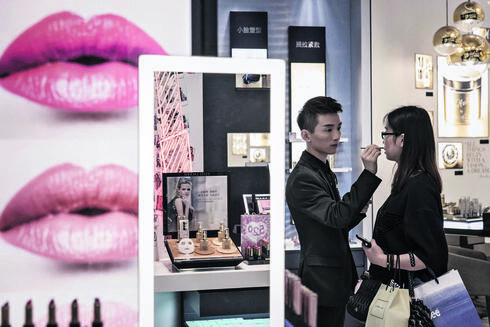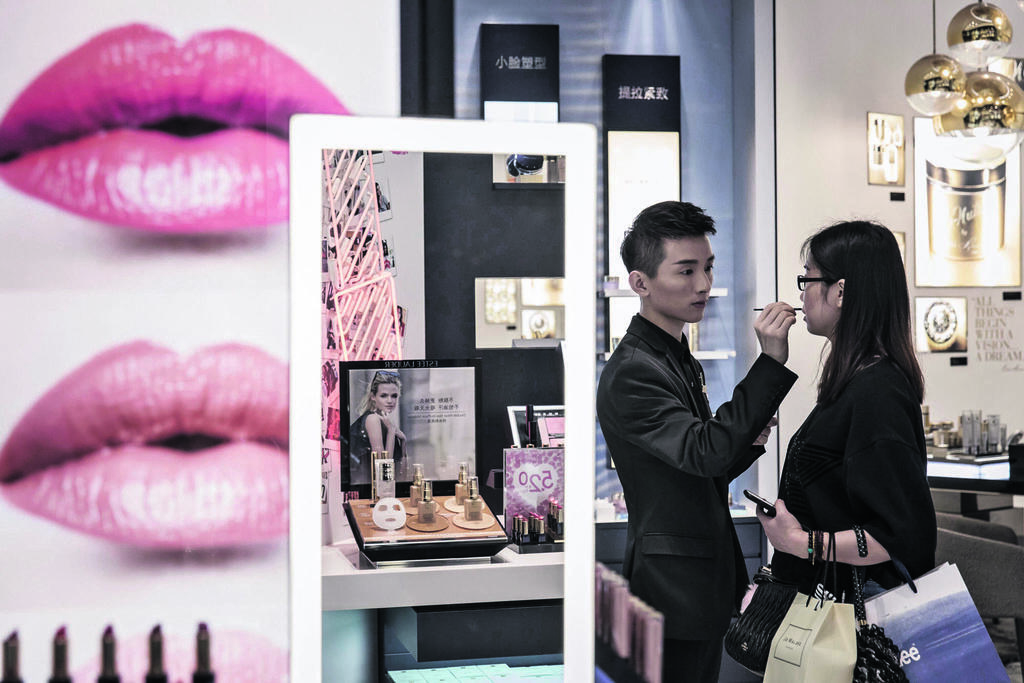
China’s consumer slowdown sends shockwaves through global beauty brands
L'Oréal and Shiseido among the hardest hit as Chinese market struggles to rebound.
China’s economic slowdown has been reflected in a decline in private consumption, with the world's largest cosmetics companies issuing poor revenue forecasts in recent months and warning of a hit to their profit margins. China’s economic slowdown has been apparent amid its sluggish recovery from the COVID-19 crisis.
L'Oréal, the world's largest cosmetics company, said last month that sales of lipstick and skin care products in China fell in the second quarter. The ongoing decline in sales led to a 2.4% drop in revenues in North Asia in the second quarter compared to the same period last year. "Operating conditions in the Chinese market remain challenging," the company said. The results matched a forecast released by CEO Nicolas Hieronimus in June, where he predicted that poor results in China would lead to a further slowdown in global cosmetics market growth.
The slowdown in private consumption in China is also leading to layoffs. For example, Sephora, owned by luxury giant LVMH, announced that it was reducing about 3% of its workforce in the country, totaling 4,000 employees. In addition to the slowdown in consumption, the company is facing stiff competition from local brands and online commerce platforms like Alibaba, which offer cheaper cosmetics. In a statement, Sephora noted that the cuts are due to intense competition in the Chinese market and the fact that customers are purchasing less.
Similar to L'Oréal, Estée Lauder has also been warning for several quarters about the effects of the slowdown in China. Since late 2022, the cosmetics company has lowered its sales forecast at least five times, most recently last month, citing weakness in the Chinese cosmetics market.
In November of 2023, Estée Lauder lowered its earnings per share forecast for the fiscal year by more than 35%, citing "a slowdown in growth in the luxury cosmetics segment at airports in Asia and sales in China." Following the announcement, the company's stock fell by nearly 19% - the sharpest daily decline since it went public in 1995. Since the beginning of the year, the stock has lost nearly a third of its value.
Japanese cosmetics brand Shiseido reported a loss in the first half of the year due to the situation in China and production problems in the United States. After publishing the report, the company's stock dropped by the largest percentage in almost 37 years, and trading was temporarily halted. Shiseido reported an operating loss of 2.7 billion yen ($18.4 million) for January to July, compared to a profit of 13.6 billion yen ($92.6 million) in the same period last year. China is considered the company's most important market after Japan.
This trend across cosmetic companies is expected to continue. According to a report by Euromonitor, the Chinese cosmetics market is unlikely to improve before 2025. Gregory Grandchamp, founder of brand management company Next Beauty, told Reuters that in his opinion, major cosmetics brands need to get used to the new norm of single-digit growth. "Groups like L'Oréal need to internalize that it's better to give up aspirations for meteoric growth and operate in a more rational market," he concluded.















